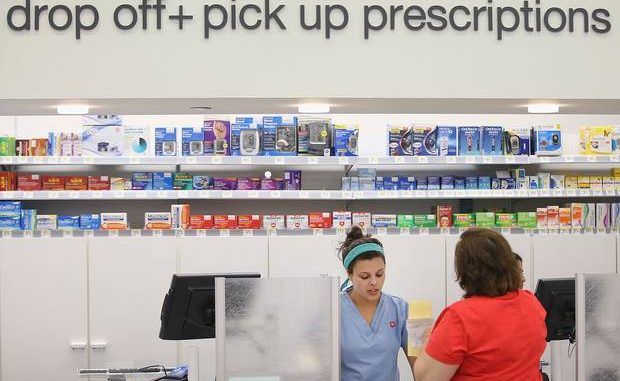
Under a national scheme drawn up by NHS England, high street pharmacies such as Tesco, Boots and Superdrug will be given access to NHS medical records, which privacy campaigners fear could be used to push sales to the vulnerable.
Tesco and Superdrug have both hit back at the claims. The supermarket giant said it would “never” use the data to “market to customers”, while Superdrug said “patient care is our highest priority.”
The Telegraph reports: Health officials have drawn up plans to send sensitive data from GP surgeries to pharmacies across the country, starting this autumn, without considering the views of patients.

BYPASS THE CENSORS
Sign up to get unfiltered news delivered straight to your inbox.
You can unsubscribe any time. By subscribing you agree to our Terms of Use
NHS England says the scheme will ease pressures on family doctors, and improve the care given to patients in the High Street.
But campaigners fear major commercial chains will be able to exploit the valuable data, and use it to push the sales of their products.
Officials have now ordered the national rollout of the scheme, on the basis of an evaluation of pilots in 140 pharmacies which they say showed “significant benefits”.
But the official report, seen by The Daily Telegraph, shows that the research garnered responses from just 15 patients – a sample so small that their views were discarded from the research.
The scheme got the green light, after the pharmacists involved in the pilots gave it their backing.
Privacy campaigners described the revelations as “extraordinary”. They said the scheme could leave the public exposed to heavy marketing tactics, from firms with inside information about their health.
Phil Booth, from campaign group medConfidential, said the valuable data would prove “irresistible” to the commercial firms which could exploit it.
“This approach to medical confidentiality is corroding trust in the NHS,” he said.
“It is just extraordinary: to roll out a national programme on the basis of 15 responses from patients, some of whom are very likely to have been negative about it. Fifteen people out of 60 million? That’s not an evidence base for a national policy; that is an exercise in manipulation,” he said.
Mr Booth said the data held in the “summary care records” – which set out details of previously prescribed medications taken – would allow companies to target patients for sales.
“These are commercial organisations, large chains, who are looking for opportunities to make money,” he said. “If you give them access to all this medical information it is irresistible to them to use it, it doesn’t matter if you try to ban it,” he said.
Summary care records are held on all NHS patients, unless they specifically opt out.
The data from them will be sent on to all pharmacies, starting this autumn, but pharmacists have to ask patient’s for “permission to view” the record during any encounter
Latest figures show such records are held on 96 per cent of patients in England.
They include all medication prescribed over the last six to 12 months, and any personal information, such as diagnoses or patient preferences added to the file by GPs.
The scheme is a forerunner to a controversial, and much delayed, national scheme which will see fuller details from GP consultations held on a central database, unless patients opt out.
Firms such as Boots, Lloyds and Superdrug will be told that the summary record can only be accessed by pharmacists during interactions about patient care, such as prescription requests and “MOT” health checks.
Patients are supposed to be asked permission before their records are accessed.


